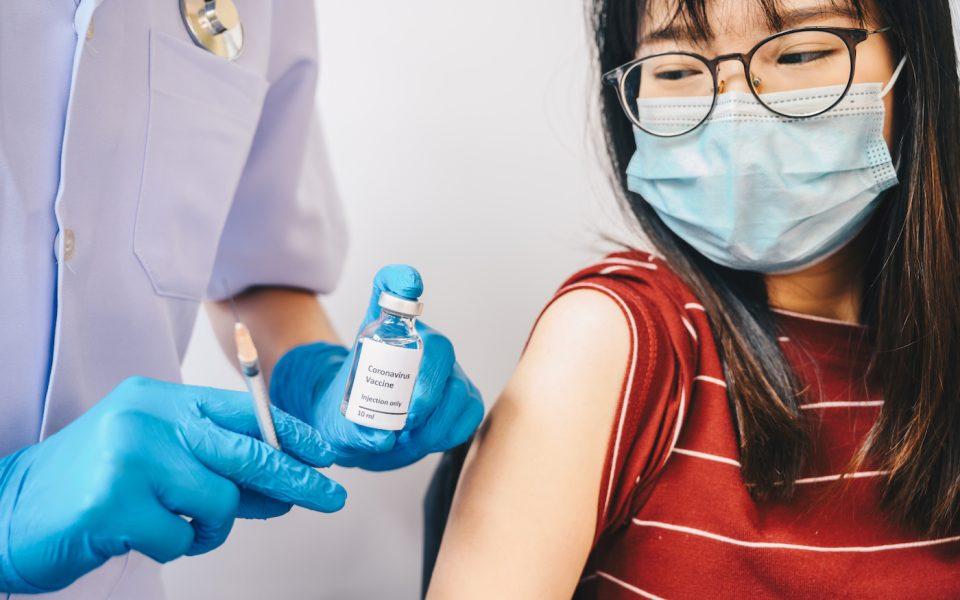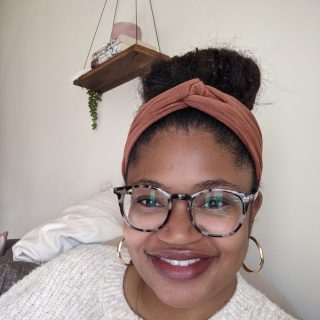Teens and tweens have some of the lowest vaccination rates compared to other age groups in North Carolina.
According to the state’s vaccine data, children aged 12-17 are not getting the COVID-19 vaccine at rates comparable to other eligible age groups. In North Carolina, as of last week, 12-17 year-olds accounted for just 12 percent of vaccinations.
Tonya Dixon, a Guilford County mother of two teenagers, said her 13-year-old and 16-year-old received their vaccinations as soon as it was approved for them.
“They were ready to be vaccinated before they even could get it,” she told Triad City Beat.
Dixon’s kids were among the peak percentage of teens who received the vaccine in May when the vaccine rate maxed out at 32 percent. That was when the Pfizer vaccine received emergency use authorization for the age group. Even one month ago, the weekly average hovered around 20 percent. So what changed?
The prevailing thought — as with vaccinations for all age groups — is that the people who were going to get vaccinated have already done so.
As of last week, just 6 percent of children 12-17 in Guilford and Forsyth counties had been vaccinated with at least one dose. This age group makes up about 8 percent of the population in Guilford and Forsyth counties.
And despite the rise of the Delta variant, parents of students in Guilford and Forsyth counties are as divided about their children getting vaccinated as they are about getting it themselves.
Dixon said she was vaccinated as early as possible so she did not have any hesitation about getting her children vaccinated and neither did they.
“[My children and I] did research on what real doctors and scientists were saying about this vaccine and we didn’t see any issue,” she said. “They’ve been out of school for a year and haven’t had that social interaction, so this is a way for them to have the opportunity to be a 13-year-old and be a 16-year-old.”
Lili Ahmand, 16, considered another possibility for the decline: teenagers no longer have the autonomy to get vaccinated on their own.
In mid-August North Carolina passed HB96, a law that, in part, requires written parental consent to receive the COVID-19 vaccine which may be slowing down the ability for eligible kids to get vaccinated.
“We don’t always think like our parents,” Ahmand said. “I could see some of my friends wanting to get vaccinated but their parents not wanting them to because of whatever belief they have. That’s kind of messed up.”
Dixon agreed.
“Adults are the ones politicizing [the vaccine], but the kids are more like, ‘This is what’s going to keep me safe, so why wouldn’t I?’ It doesn’t seem to be a big deal to them,” she said.
Zeke Daniels has three children; he says one is eligible for the vaccine. It’s been a “no” on vaccines for him since before COVID-19.
After reading ingredient lists of some of the vaccinations required for public schools, Daniels deemed vaccinations “poisonous” and decided not to get his two youngest children vaccinated, despite the US Federal Drug Administration’s approval and the Centers for Disease Control’s recommendation. He said he feels the same way about the COVID-19 vaccine.
“We learned so much more about what is in vaccines, and we didn’t think it was safe to put that in our children,” Daniels said. “With the COVID vaccine, it just feels like more of the same: the government insisting on things we should have control over for our families.”
While vaccination rates are going down, COVID-19 infection rates in children continue to rise. And even though COVID-related deaths continue to be uncommon for kids, the highly contagious Delta variant is increasing the rate of infection. Nationwide, as of Sept. 9, children account for about 29 percent, or 243,343, of COVID infections, an increase of nearly 240 percent from mid-July, according to the American Academy of Pediatrics.
Locally, in mid-July, there were 125 confirmed cases of COVID in children ages 0-17 in Forsyth County and 165 in Guilford County. Last week, those numbers were 373 and 399, respectively.
Vaccinations rates peaked for the age group at 32 percent of all vaccinations in May, after the Pfizer vaccine was authorized for emergency use for children aged 12-15. Pfizer’s emergency use authorization was amended December 2020 to include 16- and 17-year-old teens. On Monday, Pfizer said that their vaccine is “safe and effective” for 5-11 year olds. Once trials are complete and finalized, the FDA anticipates being able to complete its review “in a matter of weeks, rather than months,” said acting FDA Commissioner Dr. Janet Woodcock and Center for Biologics Evaluation and Research Director Dr. Peter Marks in a statement Sept. 10.
Cali Stevens, a mother of one teenager, said she wants to wait until the FDA does its full review and gives its complete authorization before she gets her kid vaccinated, as she did when she decided to get vaccinated.
“Kids are different than adults,” she said. “They’re still developing, and I think I’ll feel more comfortable knowing that they’ve done all the exhaustive trials, determined the right dosage and know all the side effects. I worry about her being in school, but I trust her to wear her mask and do everything she can to stay healthy until the vaccine is approved for her.”
Public school systems in Guilford and Forsyth counties require face coverings indoors but do not keep track of vaccination status for all students. Guilford County monitors vaccination status for student athletes and other high-contact activities. Winston-Salem/Forsyth County Schools tests their student athletes weekly, regardless of vaccination status.
The week ending Sept. 17, Guilford County Schools currently has 247 active positive COVID student cases and Winston-Salem Forsyth County Schools has 250 positive student cases.
Join the First Amendment Society, a membership that goes directly to funding TCB‘s newsroom.
We believe that reporting can save the world.
The TCB First Amendment Society recognizes the vital role of a free, unfettered press with a bundling of local experiences designed to build community, and unique engagements with our newsroom that will help you understand, and shape, local journalism’s critical role in uplifting the people in our cities.
All revenue goes directly into the newsroom as reporters’ salaries and freelance commissions.


Leave a Reply